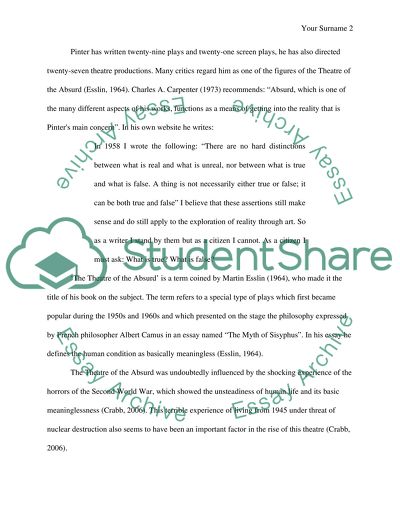Cite this document
(“Harold Pinter is and absurdist-existentialist writer in his play The Essay”, n.d.)
Retrieved from https://studentshare.org/literature/1435822-harold-pinter-is-and-absurdist-existentialist
Retrieved from https://studentshare.org/literature/1435822-harold-pinter-is-and-absurdist-existentialist
(Harold Pinter Is and Absurdist-Existentialist Writer in His Play The Essay)
https://studentshare.org/literature/1435822-harold-pinter-is-and-absurdist-existentialist.
https://studentshare.org/literature/1435822-harold-pinter-is-and-absurdist-existentialist.
“Harold Pinter Is and Absurdist-Existentialist Writer in His Play The Essay”, n.d. https://studentshare.org/literature/1435822-harold-pinter-is-and-absurdist-existentialist.


